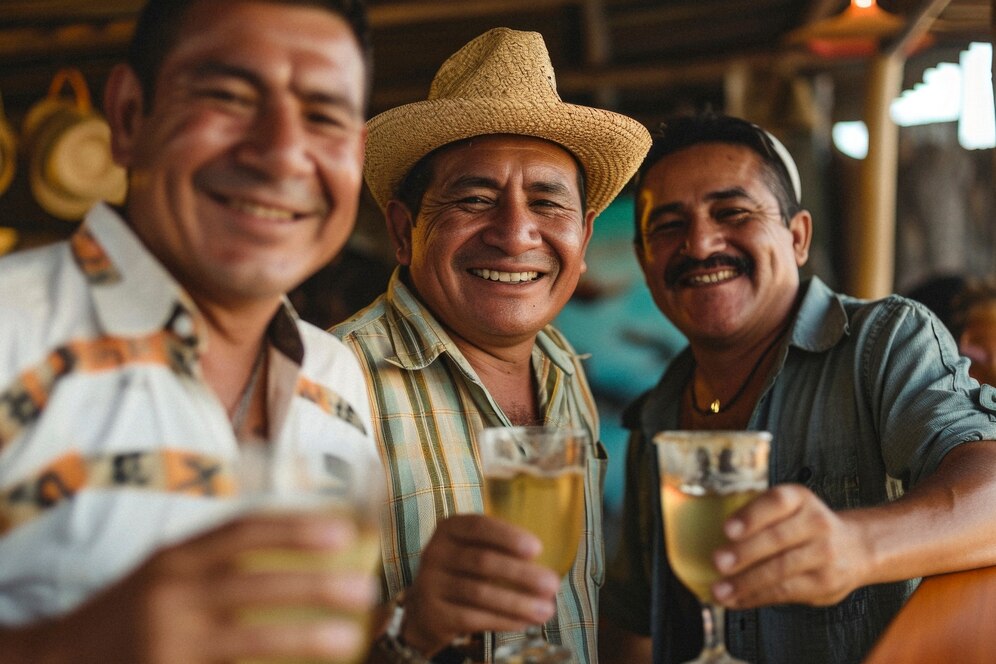The liquor market in the Philippines has a very interesting old tradition coupled with a whole lot of cultural influences at present. More and more Liquor Supplier Philippines are now leaning toward the authenticity of their beverages to have the edge against the competition in a market that is increasingly valuing locally made alcoholic drinks. This local authenticity keeps in mind the Filipino consumers’ preference for celebrating heritage while opening up to foreign markets that may want to experience local flavor specialties.
How Liquor Suppliers Promote Local Authenticity
Highlighting Traditional Production Methods
They combine old-world techniques with recipes passed down through the generations. For example, they have lambanog distillers; they often unveil their way of organizing a very meticulous process of gathering coconut sap and distilling it in small amounts to ensure quality.
Collaborating with Local Artisans
When suppliers partner with local artisans, it makes them authentic. They really improve the product quality and strengthen community ties. Claims may be made that they encourage sustainable practices as well.
Branding and Packaging
Packaging delivers authentic localization communication. Local identity is communicated through designs that are very Filipino, from indigenous textile patterns that capture the intricacy of types to portraying imagery from the rich landscapes within the country so that customers are attracted and moved.
Storytelling
Every bottle, as they say, has a story to tell. Alcohol merchants now sponsor that tale with the history, culture, and craftsmanship behind their products. A marketing campaign, an event, or even a simple label manages to carry forth those stories, which eventually strike chords with many consumers who are now looking for deeper connections.
Promoting Pairing with Filipino Cuisine
These products are perfect companions to Filipino dishes. One such example is the neutral taste of lambanog which complements the hard flavors of adobo or lechon; on the other hand, basl is perfect with sweet and sour viands like paksiw.
Cultural Connection
The sense of connection to a deep culture is imbibed in a liquor that truly portrays local authenticity. Lambanog (coconut wine) and basi (sugarcane wine) are drinks that represent more than just an alcoholic beverage; they are the celebration of Filipino traditions, agricultural heritage, and craftsmanship. The suppliers who fight for such local produce tap into the national pride of their customers.
Demand for Unique Flavors
Presently, consumers are mostly millennials and Gen Zs who are looking for something different when it comes to experiences and tastes. In this way, locally made liquors in the Philippines with their unique ingredients such as nipa palm, rice, and tropical fruits provide them a different taste that would never be there in any international brands.
Supporting Local Economies
When liquor distributors source locally and partner with local suppliers, they pump money into the economies of rural communities. These developing Tswana sustainable narratives also sell to socially conscious consumers.
Global Market Appeal
As the rest of the world moves forward towards embracing craft liquors and artisanal spirits, those who give their products authenticity in the traditional sense stand out from the Filipino liquor brands. Locality, spirit, and method of fermentation foster extra buyer attraction for potential international customers who want absolutely exclusive and culturally rich beverages.
Iconic Local Liquors in the Philippines
Lambanog
Dubbed coconut vodka, lambanog is a distilled liquor derived from the sap of a coconut tree. It is traditionally prepared in local provinces like Quezon and Batangas, where the presence of this product boasts a high content of alcohol, as well as a smooth, versatile flavor profile, which appeals to many as the preferred infusion drink or used in cocktails.
Basi
As per that record, Ilocano-based wines produced from sugar cane have already been part of the culture of the island for quite some time. Sweet and sour, this basi is an excellent match for Filipino dishes and a unique option for those who usually drink wines made of grapes.
Tapuy
Tapuy is an indigenous rice wine from the Cordillera region; merged into ceremonies and celebrations among local tribes. Sweet and slightly tangy in flavor and creamy in texture, it is a much-loved specialty.
Tuba
Made from the sap of the nipa palm, tuba is a popular drink in the Visayas and Mindanao. Normally, it is drunk fresh but it can be aged to develop a heavier taste like sherry or even port.
Craft Beers
Not being orthodox, we have the craft beer movement in the Philippines that includes local ingredients like calamansi, ube, and mango to infuse flavors embodying Filipino identity.
Key Takeaway
Local authenticity in the Philippines forms a huge pillar in the liquor industry. By embracing the heritage such flavors bring, coupled with the much-promoted sustainable practices and cultural heritage, this liquor market tends to carve an identity that is very unique for itself from the rest of the world. While challenges may be faced, still the opportunity is more potent, for whatever one is willing to innovate while holding one’s local roots. Be it for locals or rather for many other countries, Filipino liquors are rich and ready to shine on the international stage under that authenticity.



